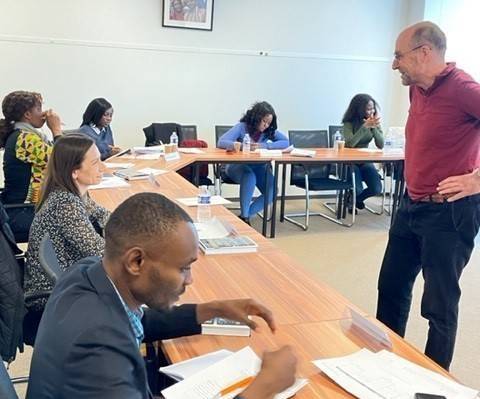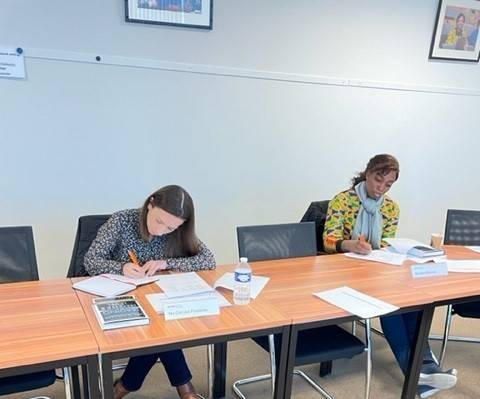Developing your personal leadership style to influence with power
“When you join this program, it will expand your perspective on leadership, and it will expand your knowledge on leadership. This will help you both personally and professionally” according to Mrs. Erica Marfowaa from Ghana who joined the 5-day executive program Personal Leadership Skills, which took place from 7 – 11 March 2022.
To effectively manage, develop and lead others, you have to be able to manage, develop and lead yourself. Leading yourself means knowing who you are and understanding how you act in different interactions and situations. Developing your personal leadership style and values is a central theme in MSM’s executive Personal Leadership Skills program.
Neuro-based leadership
After a warm welcome of Mr. Dorus Evekink, Program Manager MSM’s executive Leadership programs, Mr. Martin Lammers, International HR professional and consultant, took over and dived into the world of leadership styles and theories. The participants learned that neuroscience (brain research) is an important part of leadership as neuro-based leadership is transforming the way we lead to optimize, motivate, engage and perform.
The combination of power and influence
The participants learned how power and influence can affect leadership. Influencing with power is a continuous process which can help building a culture of trust down and across the organization. They discussed what it is that makes someone a real leader and the level of importance of being authentic as a leader.
Engaging and motivating people
Based on Daniel Pink’s book “Drive” the participants learned about three elements of true motivation: autonomy, mastery and purpose, and about techniques how to change the way people think and live. To explain further, Mr. Lammers used the models of transactional analysis to show the participants how to influence and motivate others by behavior.
Skill of the leaders
The participants enjoyed a guest lecture of Mr. Jacques Huberts, consultant in leadership, change- and conflict manager. In his lecture, he talked about different types of leadership styles and the impact each type of leader can have. This part of the program was highly valued by Mrs. Erica Marfowaa: “Mr. Huberts has many years of leadership experience. He was the kind of leader that made decisions based on the situation at hand and not only on emotions. What I learned from Mr. Huberts is that in order to be a good leader you should be an institutional leader, a mixture of all different kind of leadership styles.” Following the guest lecture , Mr. Lammers shared practical theories and exercises in order to increase influence. The participants explored the skills that are needed when dealing with politics, framing, negotiating, communication, team dynamics and feedback.


How to initiate and lead (strategic) change
The last day focused on leading and managing change, where the participants learned that progress is impossible without change. The program closed with presentations by the participants in which they shared their personal vision on leadership based on what they learned throughout the week.
Would you like to join the Personal Leadership Skills program as well?
We plan to have another Personal Leadership Skills program in the first half of next year. Please keep an eye on this page to find out when the next program will be scheduled. For more information, please contact Manon-Souren Huppertz (Senior Executive Education Officer)
About MSM’s executive education programs
Today’s rapidly changing societies and economies demand the most from organizations, leaders, managers and professionals. MSM’s Executive Education programs for emerging markets are developed to achieve a successful and sustainable transformation of both individuals and organizations to support local economic development and business management.
Related news
Learning about finance and investment in Burundi
Deepening trainees’ knowledge on gender and building their skill towards gender sensitive and responsive institutions
Value Chain opportunities and challenges for companies in emerging markets

